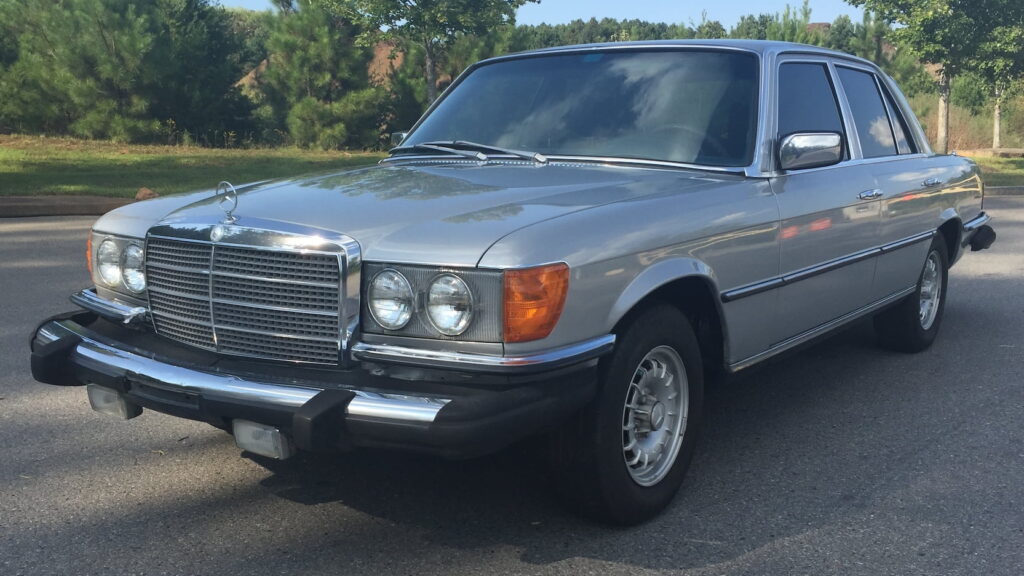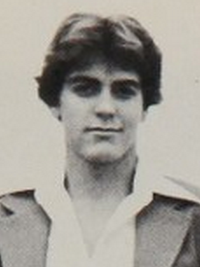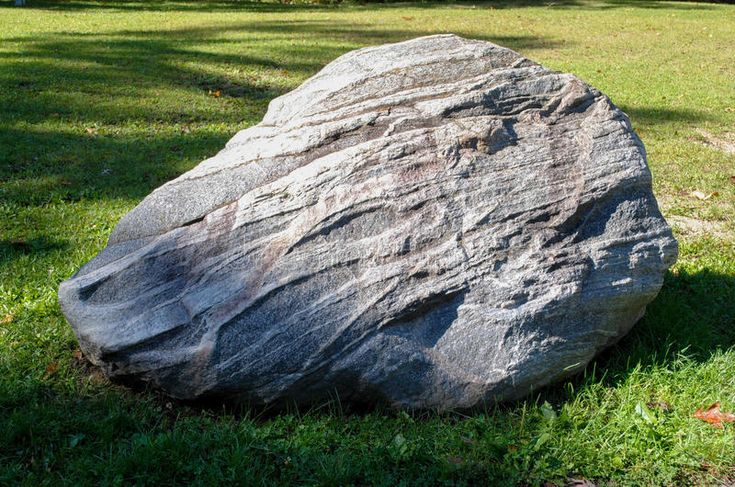My website is mostly devoted to Flavin Stories. Above, you’ll see a number of menu options, such as Real News, Social Commentary, Academic, etc.
3,102 words, 16 minutes read time.

By the time I owned this 1979 Honda Civic 1200 Hatchback in 1985, I was 18. In a little over two years after getting my driver’s license at 16, I had already owned a ‘69 Buick Gran Sport, ‘74 AMC Gremlin (co-owned with brother Pete), ‘64 Pontiac GTO convertible (co-owned with brother Pete), and a ‘67 Camaro (co-owned with brother Pete). This was all thanks to a $6,787 inheritance from when my mother died two years before, plus a good-paying job at Mack’s Earplugs.
We weren’t practical. I don’t know what Pete was thinking about, but I was a teenager and had about as much forethought as a crustacean. But, boy, were these nice cars.


The Honda was by far the smallest I’d owned, and in January 1985, I drove it from Detroit to Russellville, Arkansas to attend Arkansas Tech University (ATU). A high school friend and football teammate and I were invited to try out for their football team.
Even though there were a dozen or so perfectly good colleges in the state of Michigan, we went to this relatively obscure college 907 miles away for the prospects of continuing our football careers.
To be clear, the ATU football program might have invited me because I could run fast, but Darion (pronounced like Darren) Carter was a more realistic choice for recruitment; he was about 6’ 1” and close to 200 pounds. I was 5’8″ and 145 pounds (-ish).
I went to the first spring workout in late January. I took three steps into the weight room and then stopped walking. I saw a cliché sweaty, red-faced offensive lineman-looking guy stand up in his tank-top after a set of bench presses. My intellectual processing needed no more than 2.37 seconds to decide that my college football career was over. I turned around, walked out, and the whole thing lasted seven seconds. Or so. You could say I tried out for college football.
“Maybe I should try out for the baseball team,” I thought, as I exited back into the daylight, thinking about my class schedule.
I didn’t try out for the baseball team either.
As far as I know, Darion did try out, made the team, and played for at least a season. Even though he and I got along well at Ferndale High School just a few months before, we didn’t hang out at all. I remember he and I laughing a lot. He was funny, always hitting me with the back of his hand as he talked with a big smile on his face, usually making jokes.
But in Arkansas, he stuck with his football pals, also from the Detroit area, while my friends were four completely different guys, both from each other and from Darion.
All of Darion’s friends were black; most of mine were white, except Fernando, who was from Buenos Aires, Argentina. He spoke decent English, as he wrestled with a deep, guttural accent. It pained me to listen to him labor to get the words out of his throat. His face was angular and stone-faced and kind of grim, until he smiled, then it lit up. We mostly walked around campus talking politics, society, and god.
Bill Ford wore thin, tight American flag shorts that might as well have been red, white, and blue Saran Wrap, which exposed his junk, and he thought AC/DC was evil because they wrote songs like “Highway to Hell.” Literally. Sounds like a dream dorm roommate, I know, but I actually didn’t have one for a little while, which was nice. Then the 25 year-old born-again Christian arrived about three weeks late. I thought I was in for an excruciatingly long and arduous roommate experience, but in the end, Bill Ford became a good friend and mentor.
Then there was Trey: a local hick with an exaggerated Southern drawl. Everything was funny with him, and he asked a lot of questions: “Whereyoufrom, Jawwn?” he asked, as we drove our laundry to the laundromat. I told him Michigan, and he asked, “Isn’t that in Chicago?” I told him how stupid he was, and we laughed it off at his expense. He was the kind of guy you couldn’t hurt with words if you insulted his mother in a post that went viral.
Finally, Dillon was the lead in every play. He was from Arkansas, confident, popular, and perpetually “on.” He had the face and jawline of a young George Clooney, and for reasons I didn’t completely understand, he befriended me. I rolled with it, but I was intimidated. In my late larval stage (late teens, early 20s), I didn’t get what an upper classman who shaved every day had to gain from a still developing, relatively hairless and out-of-place freshman. I still don’t get it.
So, despite having known Darion for years, he and I only saw each other occasionally at common places, like the campus cafeteria.
One day he found me around lunchtime with a tray full of forgettable food. He approached with a purpose: “Hey, Flavin, you driving home for Spring break?” I told him I was. “Can me and a few guys ride along with you?”
I agreed, of course, without a thought about how a Honda Civic 1200 might perform hauling four football players, plus me and our luggage, up and down the soft but not insignificant hills of Arkansas and Tennessee.
It’s important to know that when the Honda advertisement at the top of this page says “1200,” it refers to the size of its engine. 1200 is the number of cubic centimeters (CC’s), which is equal to 73 cubic inches (CI). For comparison, my Gremlin’s engine was 232 CI, the Camaro was 289, GTO 389, and the Buick was 400.
The 1979 Honda Civic 1200 Hatchback: 73. I’ve been told that Honda had simply turned their biggest motorcycle motor sideways and stuck it in the Civic.
Let’s do some quick math:
~600-pound motorcycle + 2 people (x 180 pounds each) = ~960 total pounds.
Conversely, when Darion asked if I could drive him and his football friends to Detroit, the burden on that same engine was a little different:
~1,500-pound car + 5 people (x 180 pounds) = ~2,400 total pounds.
The math: that’s 2.5 times as much weight.
Horsepower, still 50.
If a 900-pound rock were set inside that car, it’s hard to imagine it moving, let alone transporting me and chuckling Trey to the laundromat and back. And yet we wanted this poor thing to take the five of us home without something breaking.
Something broke. It was the timing belt, which, in retrospect, is a no-brainer.
The five of us left after classes on a Thursday, me and four black football players. (The ‘black’ part is relevant.) We drove across two-thirds of Arkansas and almost made it out of Tennessee. The timing belt snapped after traveling for seven hours, or 451 miles — almost exactly the halfway point. As admirable as that effort was, we were still 456 miles from Detroit. And, we were several miles away from the nearest town, so we had to hitchhike.
It was about 8:00 pm, pitch dark, and here we were, four black guys and a white guy, thumbs out, waiting for the famous Southern hospitality to scoop us up. Cars big and small zipped past. Vans, pick-up trucks, and campers passed with no sign of slowing. Semis and other long-haulers rumbled past. For thirty minutes (more?), five young men stood hopelessly on the side of northbound I-65 somewhere between Nashville and the modestly-sized Portland, Tennessee, just a few miles from the Kentucky border.
I was oblivious. As privileged as a white boy can be, I had zero thought about why we weren’t being picked up. Granted, there were five of us, and that’s a tough ask, but this was the good ol’ days when hitchhiking wasn’t presumed to mean that our bodies would be carved into tiny pieces and eaten. It was just a little risky back then. And, this was the South; at least several dozen pick-up trucks could have safely packed us in the cargo bed and driven us a few miles north. As it turned out, the next phone and place to sleep were only three or four miles ahead. Had we known, it wouldn’t have been much fun, but we could have hoofed it.
After a while, one of the guys told me to step closer to the road in order to make me more visible. I did, but it didn’t change our luck.
Another one of Darion’s friends abruptly said what was obvious to him:
“Man, this is bullshit! Ain’t no one gonna pick up four black guys standin’ on the side of the road in fuckin’ Tennessee! This is the South! One white guy doesn’t change the fact that we’re black.”
I turned to face them. He continued: “Flavin, you stand there with your thumb out; we’re hiding back here in the grass, down the hill. When they stop for you, tell ’em you’ve got some friends, and ask ’em if we can come along!”
Less than thirty seconds later, the next vehicle to pass was a semi with an extra big sleeping cab, and it pulled over to pick me up. I ran forward on the freeway shoulder, the other guys a few yards behind. I opened the door and asked the trucker if my friends could come along.
“Sure can,” he said, waving his arm as if to welcome me and whoever my friends were. I got in behind the passenger seat and scooted on the mattress over to the driver’s side, making room for the others.
Then came Darion, who nodded with his big friendly smile. The trucker looked surprised. Then the next friend, and the trucker noticeably leaned back. And then the next friend, and the next, until the trucker had his back against the door. One second he’s giving a ride to a nice, lost white boy; the next he’s got five people crammed into his cab. When the trucker recoiled, it was more involuntary than fearful. But I don’t necessarily think he was put off, because he didn’t flinch.
The last friend closed the passenger-side door, the trucker turned toward his steering wheel, put the big hauler in gear, and we were on our way to Portland, Tennessee. It wasn’t awkward, but not a word was spoken other than to say we’d take the next stop with a gas station or restaurant.
Five minutes later, we piled out, thanked the man, and found ourselves at a well-lit truck stop trying to figure out what to do next. Darion called home, we got a room at the Red Roof Inn across the street, and waited half-a-day for his mother to show up in her 1979 Mercedes Benz 300D. “D” for diesel.
Horsepower: 121.

The events of that night were characteristic of my late teens and early 20s. The way I have described my post-high school life is that I “wandered for seven years” after graduating. I distinctly remember a few years later being 25 and thinking: “I’m an adult. I will never be a child again. I will never go back.” Full realization.
Yes, it took me until I was 25 to recognize myself as an adult. In some ways it took longer, but to my credit, I got serious about my education and pursued something more ambitious than drinking beer, smoking pot, and complaining about Republicans with my brothers.
One defining characteristic of my late-larval stage (early 20s) was my capacity to be utterly clueless in some ways. For example, on this night:
- It hadn’t occurred to me that five young men and their luggage might be too much weight for my notoriously tiny car.
- Before I got out of the car, it never crossed my mind that it was a little bit extraordinary to hitchhike on the highway in the deep South with four black men. Or, that I was the only white man. (Frankly, I didn’t acknowledge the legally accepted age that said I was no longer a boy, but a man; remember, this was six years before I accepted that I was even an adult.)
- When we didn’t get picked up in 30 minutes, I wasn’t planning for what we might do if no one ever stopped, nor did it occur to me how unlikely it was simply because of who I was with and where we were. I took it for granted that everything would work out fine.
- When Darion’s friend got pissed, I didn’t feel or understand his anger inasmuch as I understood that he was angry; I only heard his frustration, for understandable reasons, as we waited in the dark with no solution in sight.
- When Darion’s friend ordered me to hitchhike while they hid, I comprehended his logic. It made sense: we were more likely to get someone to stop, thereby improving our chances of being carried to a safe and comfortable place. Good plan.
When the tractor-trailer slowed to pick us up, I can only recall a ghost of myself asking whether my friends could join us, of entering the cab, and then making room for them. After noticing the driver back away from Darion and each of his football friends, one by one, finally I began to catch on to the plight of my non-white companions.
The trucker wore the predictable worn baseball cap and the predictable (brown and white) flannel shirt. His bemused, weathered face suddenly came to the fore of my consciousness; his visual stereotype had aligned with his involuntary physical reaction to back away, and it fractured my birthright to ignorance. For the first time that evening (ever?), I recognized the racism, even though it had already whacked me across the forehead several times.
To be fair, I didn’t know anything about that trucker. That man. That human being. For all I know, he was a kind man who was understandably astonished to see that many people of any color continue to pour into his domicile, his livelihood, his personal space, one after another. And, for all I know, since that may well have never happened to him, his speechless surprise was natural.
I only know that until the driver showed consternation, I was clueless about the role of race that evening, the differences between my own experience and that of Darion and his friends, and the privilege I held in being granted the right to live securely and comfortable, wallowing in my mindless lack of unawareness — and still come out okay. Despite the circumstances — broken car on a dark freeway nearly 500 miles from familiarity — I didn’t have to be witty or personable or wary. I didn’t have to worry about arrest or mistaken identity or violence.
I didn’t have to think very hard at all. Everything would work out fine. It always had, and it did.
After my mother died in 1983, I lived with another high school friend (and fellow football player), Chris Vinton, and his family. When Darion’s mother dropped me off, it was at the Vinton’s house in Pleasant Ridge, Michigan, a fairly posh little town outside Detroit next to the suburbs of Ferndale and Oak Park. I didn’t live there at the time (in ’85), but they continued to treat me like “a brother from another mother,” so I went to them for holidays and crises.
Of course, there was the issue of having abandoned my little 1979 Honda Civic 1200 Hatchback on I-65. How does a 19 year-old orchestrate resolving that problem?
I didn’t pick up a telephone, open my wallet or lift a finger. Chris’s dad James was a Ford Tractor salesmen in the Michigan-Ohio-Indiana-Kentucky region. It so happened that he knew a guy with a platform truck who would pass by my car just south of Portland, Tennessee. Mr. Vinton made all the arrangements by long-distance telephone calls, and in a couple days, it was in our driveway. I got it fixed and a week later, alone this time, I drove it back to Arkansas for the remainder of the semester. Like it never happened.
I’ve since wondered how the conversation went in the other guys’ homes.
I might have seen Darion (and his football friends) once or twice before the end of the term in late May, but that was the last time I saw any of them. He never complained about my car breaking down, never mentioned the cold realities of that night, nor did we casually debrief in a friendly way, or otherwise. For me, it just came and went.
After several years, I comprehended the irony and significance of the story as a humorous one. Then, after attending a conference on equity just a few years ago (2019), I discovered that any humor in irony depends on perspective, and what end of that irony you are on.
During one activity, I volunteered to sit in a chair in front of another participant, a black woman. The object was, without interruption and for one minute, to share with each other one personal experience involving racism. The others in our group would surround us and watch.
I went first. I began to tell this same story that I’ve told a hundred times with the same angle on ironic humor. I felt all of the blue, green, and brown eyes on me as I faced the black woman, telling the story of four black men stranded on northbound I-65 in the Deep South at 8 o’clock at night, their best hope being the white guy, while they hid themselves.
As if I were trying to haul that 900-pound rock myself, I couldn’t tell it like I always had. Telling the story in front of other people of color, directly to a black woman, in a setting designed to heighten my consciousness, it hurt too much; the irony had solidified and the liberty of humor vaporized.
Finally, after what had happened 37 years before, I understood.
Written April 4, 2022







